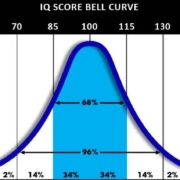I recently represented a child at an Impartial Hearing who had never had a formal evaluation conducted by his School District. This child had been receiving Special Education Services since Kindergarten and was now in 6th Grade. By law, all children must receive an initial evaluation before they are classified as needing Special Education Services. Furthermore, every three years the child must be evaluated to determine whether the child should continue to receive services and if so, whether additional services are warranted. Though this child should have had three complete evaluations by the time he was in 6th Grade, in fact he had received none.
This is obviously the extreme case. However, all parents should ensure that their children, if they are receiving special education services, are evaluated at least every three years. This is required under Section 200.4 of the Regulations of the Commissioner of Education. The Committee on Special Education must arrange for an “appropriate reevaluation” of children with disabilities if they deem it is necessary (such as when they have reason to believe the child’s present levels of performance have changed and therefore she may require additional supports) or if the student’s parent or teacher requests a reevaluation, but not more than once a year unless the parent and District agree. However, the District is required to reevaluate the child at least every three years, except when the school district and parent agree in writing that a reevaluation is unnecessary. Such evaluations must include evaluations and information provided by the parents and observations by teachers and related services providers.
This is important because a child’s needs will change.
Once it is established that the child should continue to be classified as having a disability, the CSE must use evaluations to determine the present levels of academic achievement and related developmental needs of the student and whether any additions or modifications to the special education services are needed to enable the student to meet the measurable annual goals set out in the IEP of the student and “to participate, as appropriate, in the general curriculum.”
Logically, the only way the District can accomplish these goals is by administering tests and other evaluations to make these determinations, and this is indeed required. If the District does not believe additional testing is needed, it must notify the parents of its determination and the reasons for it. In this situation, the school district is not required to conduct the assessment unless requested to do so by the student’s parents.
Bottom Line: Make sure your child is being evaluated.







